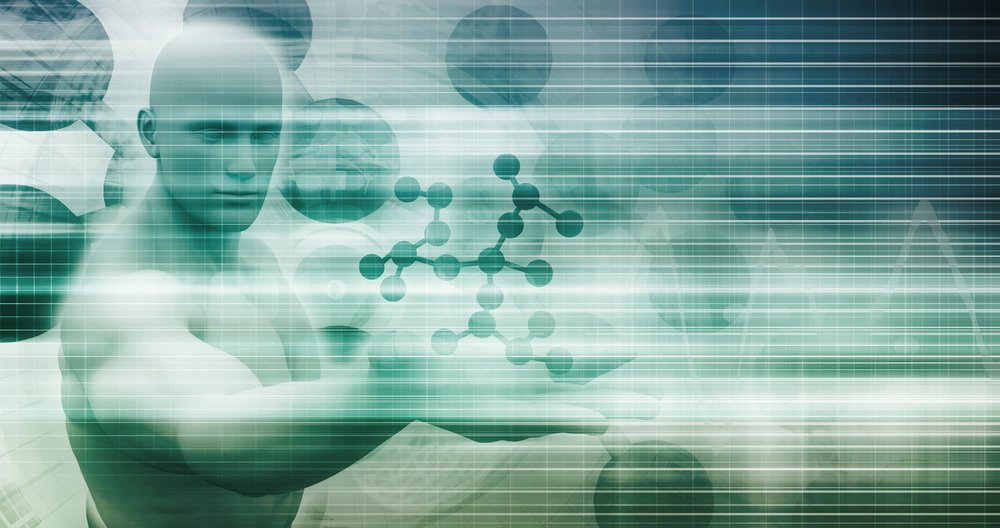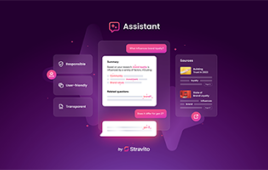
The drug discovery and development process could use an upgrade.
Pharmaceutical firms spend years sinking a tremendous amount of resources into developing drugs that could treat devastating diseases like cancer and Alzheimer’s. Factors like successful reactions in animal models, efficient clinical trial recruitment, and promising results in the first segment of human experiments deliver promising data that helps companies advance their drug candidates through this process.
However, all it takes is one issue such as an unexpected safety concern to quash a program that took multiple years to put together.
This is where startups offering artificial intelligence (A.I.) algorithms could play a beneficial role.
One firm, Exscientia, is using its A.I. fueled programs in conjunction with experienced drug developers to implement a rapid ‘design-make-test’ cycle. This essentially ascertains how certain molecules will behave and then predicts how likely they are to become useful drugs.
The Dundee, Scotland-based biotech has signed a number of partnerships with major drug companies, including Sanofi and Evotec. It recently signed a deal with GlaxoSmithKline worth an estimated $43 million to help discover unique selective small molecules for up to 10 disease-related targets.
In an interview with R&D Magazine, Andrew Hopkins, Exscientia’s CEO, discussed how his company’s platform works and the potential impact A.I. can have on the pharmaceutical industry.
R&D Magazine: Describe what your company does. How does your platform work? What makes your approach unique compared to other firms working in this space?
Hopkins: “We consider Exscientia to be at the forefront of Artificial Intelligence (A.I.)-driven drug discovery and design. Our approach is to fuse the power of A.I. with the discovery experience of seasoned drug hunters, and we believe we are the first company to automate drug design, surpassing conventional approaches. Our innovative platform enables breakthrough productivity gains as well as new approaches to improve drug efficacy.
Novel compounds prioritized for synthesis by Exscientia’s A.I. systems simultaneously balance potency, selectivity and pharmacokinetic criteria in order to deliver successful experimental outcomes. By applying a rapid ‘design-make-test’ cycle, the Exscientia A.I. system actively learns from the preceding experimental results and rapidly evolves compounds towards the desired candidate criteria.
Exscientia first developed its platform to design efficacious, selective single-target compounds, whilst further innovation now allows the same platform to design small molecules with dual pharmacology (‘bispecifics’), as well as more complex target product profiles guided by high content phenotypic data.
Exscientia is now collaborating with several leading pharmaceutical companies, including Evotec (immuno-oncology), Sanofi (metabolic disease), Sumitomo Dainippon Pharma and Sunovion Pharmaceuticals (CNS) and GSK (multiple targets).”
R&D Magazine: Can you discuss the partnerships you’ve struck with pharmaceutical companies like GlaxoSmithKline and Sanofi? What treatment areas are you targeting? What role do you see your firm playing in this development process?
Hopkins: “In early May we announced a strategic research collaboration and license option agreement with Sanofi in the area of metabolic disease. As part of this agreement, Exscientia will be responsible for all compound design, whilst chemistry synthesis will be delivered by Sanofi. Delivery of new therapies for metabolic disease (such as diabetes) is hampered by a paucity of single targets that are amenable to drug discovery. To address this challenge, Exscientia will apply its platform to identify and validate combinations of drug targets that could work synergistically and be amenable to Exscientia’s bispecific-small-molecule design strategy – where a small molecule is designed to be compatible with two distinct drug targets.
In July this year we entered into a strategic drug discovery collaboration with GlaxoSmithKline (GSK). During this collaboration, Exscientia will apply its A.I. enabled platform and combine this with the expertise of GSK, in order to discover novel and selective small molecules for up to 10 disease-related targets, nominated by GSK across multiple therapeutic areas.
Applying our approach to client discovery projects has already delivered candidate-quality molecules in roughly one-quarter of the time, and at one-quarter of the cost of traditional approaches. Our intention therefore is to apply these capabilities to projects selected by GSK.”
R&D Magazine: What are the benefits of performing this analysis with artificial intelligence in an outside capacity versus having these drug giants do it in-house?
Hopkins: “A lot of big pharma companies are exploring the use of A.I. now, as evidenced by our own experience and deals. But they don’t have the A.I. skills in house. As tends to happen, big pharma companies are not innovators and so they look outside for new technologies. They do have targets and expertise in preclinical and clinical development though and so that, in combination with our own proprietary algorithms and capabilities, is where the real synergies happen.
At Exscientia, human drug discovery experts have worked alongside the A.I. approaches for many years. The highest profile among these is Andy Bell, a co-inventor of sildenafil (Viagra) and key contributor to many other successful projects during his previous work at Pfizer, in particular as the anti-fungal compound voriconazole (Vfend). Having the opportunity to meld this knowledge with A.I. techniques over a number of years to develop an integrated system is beyond the timelines that large pharmaceutical companies can typically sustain these days.”
R&D Magazine: What are the benefits of using artificial intelligence in the drug discovery and development process? Are there certain areas where this technology could be more effective?
Hopkins: “A.I. is a new approach to drug discovery. We have designed dedicated A.I. algorithms that form part of a highly integrated ‘design-make-test’ cycle for rapidly generating high quality drug candidates. As part of this process, the A.I. algorithms deliver the new designs, which are then rapidly synthesized and tested in small batch. The system is uniquely able to learn from both existing data resources and the enhanced data coming in from the cycle. The principle is not dissimilar to how a human would learn, but the A.I. process is far more effective at identifying and assimilating multiple subtle and complex trends. As a result, the A.I. driven process is more likely to achieve the end goal and to do this more rapidly and efficiently than traditional human endeavor.
One of the key opportunities is that the amount of data now available is so vast yet, beyond a human’s individual capability. For A.I. focused towards drug design, where Exscientia concentrates its expertise, the typical sources of information would be vast databases of chemical structure, pharmacology, bioassays data as well as other supporting literature and patent information.
Working from a blank sheet of paper, the A.I. algorithms apply the distillation to the design of new, original small molecules. Successful molecules will hit the desired target whilst at the same time avoiding known selectivity, toxicology or pharmokinetic issues (among many other parameters). Further refinement through the integrated design-make-test cycle leads to completely new and optimized molecules (and IP) for advancing towards the clinic.
A.I. is also being applied to many areas of drug and clinical development. For example A.I. approaches might look at better patient stratification for clinical trials, thereby fitting the patient to the treatment being tested better, enabling quicker recruitment and increasing the likelihood of getting the required clinical response for regulatory approval. Provided there are general trends existing within the data of interest, A.I. algorithms should be able to harness these into a predictive method that can compete with more traditional human tactics.”
R&D Magazine: Please elaborate on other applications for artificial intelligence in pharmaceuticals. What are some other advantages and/or drawbacks these systems could have when it comes to creating the next potent drug or helping with R&D productivity?
Hopkins: “The need to reduce R&D costs is a major driver. Lead optimization is the highest cost per launched drug due to the number of projects researched that never reach the market. Improving discovery efficiency through high quality candidates that are discovered effectively would dramatically improve these metrics. The Exscientia approaches have already demonstrated significant improvements in productivity with one collaborative project (Sumitomo Dainippon) having achieved its key endpoints in just one quarter of the typical effort (in both time and compounds synthesized).
The need to reduce healthcare costs overall will also be a driver to consider the application of A.I. techniques. Provided the challenge given to the A.I. algorithm is reasonable and achievable, it should be able to benefit the overall drug discovery process. Where things might not meet expectation is where there are insufficient data or insufficient trends within the data for any approach to make progress. For that reason we are very careful at Exscientia to qualify the opportunity.
One area of interest is see whether A.I. approaches can be used to design drugs that could modulate multiple biological processes within a single molecule (e.g blocking tumor signaling and survival mechanisms, boosting immune response). These could be powerful additions to the therapeutic arsenal. Exscientia is looking to tackle efficacy directly by designing a breed of small molecules that we call bispecific small molecules. These are single small molecules with carefully designed dual pharmacology. Exscientia projects are already including this and an additional approach both in-house for Immuno-oncology (with Evotec), diabetes (with Sanofi) and psychiatric disease (Sumitomo Dainippon Pharma).”




